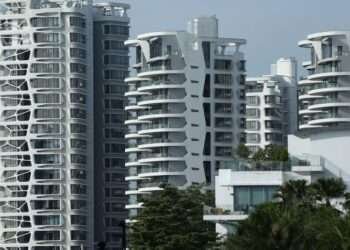Nana Odeneho Kyeremateng, Executive Chairman of Comet Properties, has disclosed that policies put in place by the government to address the challenges of housing deficit have not completely worked.
According to him, days when the agric business offered players the opportunity to earn some substantial monies for their cocoa in the world market to enable them to build houses has changed.
With this, he noted that the current world market prices do not offer same as they have been streamlined. This, he explained, has led to low revenue for such farmers who may even have the desire to build such houses.
“The policies have not worked totally. The international market has streamlined prices of Agric produce and doesn’t give room for people with 10 to 15 acres of cocoa to build houses again. When that vacuum was created, the public service came in, started employing people trying to bring young people who were civil servants, they granted them loans to build their own houses. But what was the percentage of the population that came into the public sector? They were few”.
Nana Odeneho Kyeremateng
According to him, despite Ghana Housing Department, currently State Housing, being introduced by former President Dr Kwame Nkrumah, which helped some environs including Cantonments, Labone, it also weakened due to economic challenges the country faced in the 1970s.
“When the ERP and the structural adjustment programs came in the 1980s with Rawlings, the World Bank said forget about building houses as a public sector function”.
Nana Odeneho Kyeremateng
Transfer of power to private sector
Mr Kyeremateng explained that the way government has transferred power to create affordable housing to the private sector doesn’t augur well for the sector.
“I don’t support the idea of insisting that it is the private sector that should lead in financing and funding housing. Government should play a major role. Big funds into a wholesale holder, who will then give it out to the mortgagees so citizens can get access to the funds.”
Nana Odeneho Kyeremateng
Mr Kyeremateng made his argument following the Ghana Statistical Service indication that the Greater Accra remains the most populated area with 5.44 million people, compared to the 4 million recorded in 2010.
The provisional report also revealed that out of the 10.7 million structures listed, 20 per cent were kiosks and wooden structures. One out of every five structures listed was not fully completed.
Partnership between government and private sector
Managing Director of Ecobank, Ghana Mr Dan Sackey in October last year revealed that private sector must complement government’s efforts in bridging the housing deficit in the country.
He noted that the continuous growth in the proportion of the Ghanaian population who live in urban areas had adverse impact on the country’s deficit.
Mr Sackey explained that there was the need for banks to act not only as financiers but as facilitators as well. Provision of customers with suitable payment platforms and solutions, he revealed will help to resolve the challenges that they may encounter in owning homes.
The Executive Secretary of the Ghana Real Estate Developers Association (GREDA), Mr Samuel Amegayibor also revealed that affordable housing in Ghana was only possible, if politicians would agree to collaborate with local technocrats and private real estate developers.
Read Also: Real results haven’t been achieved- UTAG on strike negotiation







